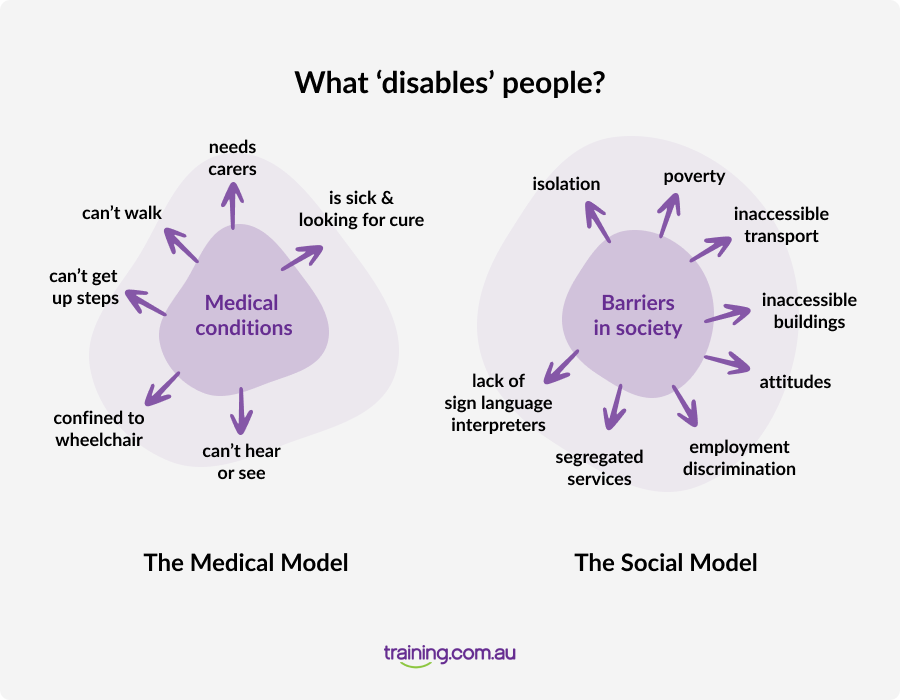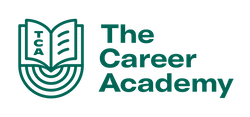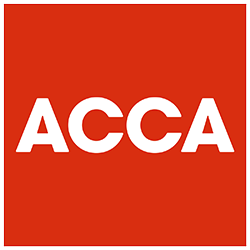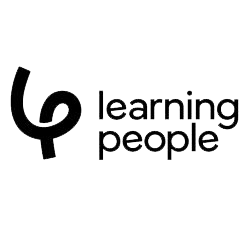In this post
- 1. There’s a difference between disability, learning difficulties and ‘special needs’
- 2. It’s important and incredibly rewarding work
- 3. How you interact has a big impact
- 4. Your career possibilities are wide-ranging
- 5. You have options in courses for special and inclusive education
- Are you up for the challenge?
- Browse 5 Things to Know Before Working with Kids with Disabilities & Learning Difficulties Results
5 Things to Know Before Working with Kids with Disabilities & Learning Difficulties

In this post Show
- 1. There’s a difference between disability, learning difficulties and ‘special needs’
- 2. It’s important and incredibly rewarding work
- 3. How you interact has a big impact
- 4. Your career possibilities are wide-ranging
- 5. You have options in courses for special and inclusive education
- Are you up for the challenge?
- Browse 5 Things to Know Before Working with Kids with Disabilities & Learning Difficulties Results
When you work with kids with disability or learning difficulties, you can make a huge difference — not only in a child’s life but to their families and the wider community too.
Are you passionate about giving every child the opportunity to flourish? Then you’ll find many career possibilities open to you in education and disability support.
Here are five things you need to know before you start working with children with disability and learning difficulties.
1. There’s a difference between disability, learning difficulties and ‘special needs’
Because language impacts people’s lives — and whether they feel respected and included — it’s vital to get it right. On the other hand, when people use the wrong words, it can create more confusion and problems. Here’s a quick primer on some of the basics.
What is disability?
For more than 40 years, disability advocacy has used the social model of disability. The social model rejects the medical model, which sees disability as a health condition to be fixed and treated.
The social model says the problem is not with the person’s impairment or with their bodies. Instead, the problem lies in whether society is accessible. So, we should change society to accommodate people living with impairments.

Since, then are now two ways to define disability in Australia:
The social definition of disability
“Persons with disabilities include those who have long-term physical, mental, intellectual, or sensory impairments, which in interaction with various barriers may hinder their full and effective participation in society on an equal basis with others.”
—United Nations Convention on the Rights of Persons with Disabilities
The UN definition goes one step further than the social model. It recognises that dignity is a basic human right — and that once barriers are removed, more support may be needed to achieve that dignity on the same level as everyone else.
The national legal definition of disability
The Disability Discrimination Act (DDA) provides a broad definition, including eight types of disabilities:
- Physical disability: Impacts mobility or dexterity
- Intellectual disability: Impacts ability to learn or process information
- Mental illness: Impacts thinking processes
- Sensory disability: Impacts the ability to hear or see
- Neurological disability: Impacts the brain and central nervous system
- Learning disability: Impacts acquisition, organisation, retention, and understanding of information
- Physical disfigurement: Impacts physical appearance
- Immunological disability: Impact due to the presence of organisms causing disease in the body
People can be born with a disability or acquire one through an accident, disease, or genetics. Disabilities can range from being permanent to temporary as well as visible to invisible.
7.6%
of children aged 0–14 years have disability
Source: Australian Institute of Health and Welfare
Learning difficulties vs learning disabilities
If you’re working in education or support work, you’ll undoubtedly hear the terms ‘learning difficulties’ and ‘learning disabilities’. You might also hear people saying ‘special needs’, ‘special education’ and ‘inclusive education’ and wonder, are these things different? And if so, how?
Here’s what each means, and how they’re different:
Learning difficulties | Learning disabilities |
|---|---|
Means the child has trouble learning academic skills | Based on a medical diagnosis |
Affects 10-16% of the population | Affects 2-4% of the population |
Can be caused by physical, emotional or environmental factors | Lifelong condition with neurological causes |
Can be improved with educational interventions | Cannot be improved with intervention. |
Not legally recognised as disabilities under the Disability Discrimination Act and state disability laws. | Legally recognised as disabilities under the Disability Discrimination Act and state disability laws. |
Source: ADCET
What does ‘special needs’ mean?
‘Special needs’ is a euphemism, and disability advocates advise against using it to describe someone with an intellectual, psychosocial, or cognitive disability.
People With Disability Australia describes it as ‘ableist’ and ‘condescending’, saying ‘people with disability have rights not needs.’
Source: PWD Language Guide
2. It’s important and incredibly rewarding work
Deirdre Brandner is a psychologist who diagnoses and supports children and their families who face learning and emotional challenges. She’s also a former teacher and is passionate about giving each child the opportunity to flourish.

“I started my career as a primary school teacher. The children in my classroom had diagnosed and undiagnosed issues. I didn’t feel that I had an adequate understanding of how best to support these delightful children.
Every child should be able to be given the opportunity to achieve. By returning to study and becoming an educational and developmental psychologist, I now have the privilege to work with these children and their families.
The inability to take on new clients is challenging. I want to be able to help more families, but there are only so many hours in the day.
To meet this challenge, I try to provide support through social media, presentations and webinars so more families can have the resources they need.
You need to have a sense of humour, and you must love kids! Know that there is no magic wand, but you can help make small changes that can have very positive results.”
“Helping the family is as important as working with the individual child. Every child has the ability to bring joy, and it is a privilege to work with this special group.”
3. How you interact has a big impact
Whatever your role, how you treat people experiencing difficulties or disabilities matters.
It certainly matters to the child and their family. It also matters on a bigger scale. Seemingly small actions can cause a ripple effect. Together they combine to form culture, including how society views and relates to people with disability.
Here is a list of 5 tips to follow when helping children with learning difficulties or disability.
Identify
When you’re introduced to a child with learning difficulties or disability for the first time, find out what may impair them. Are they neuroatypical? Do they have a physical impairment? Do they have less developed social skills? Are they non-verbal? It can be challenging to identify the impairment, particularly in young children. This information will help you first interact with the child and understand why they may (or may not) react in specific ways.
Consistently interact
Don’t be intimated or hesitant to interact! Sometimes it takes a few tries and methods to find the right one that appropriately engages the child, but you must persist. Remember to introduce yourself, try and make eye contact as much as possible and explain the activity clearly.
Observe
Notice what works and what may not when it comes to each child. What elicits a reaction? Is it positive or negative? What form of stimulus captures their attention? Aural, physical or visual?
Be patient
Sometimes it’s frustrating, and often it can feel as if any progression you do make is very quickly lost. Don’t be disheartened by this! Developmental delays are common. Continue with the methods you’ve found to work, communicate with the parents if possible and, most importantly, allow the child to build their trust in you.
Communicate
Open communication is essential, whether it’s talking to the child themselves, their parents, or other authority figures in the child’s life. Especially if the child is non-verbal or has a behavioural or learning disability, it can be challenging to receive any feedback from them. Try and speak to the individual child’s parents or teachers to gauge some form of feedback and share any headway you may have made.
4. Your career possibilities are wide-ranging
Are you passionate about helping children reach their full potential? Many career opportunities await you in the education and disability support sectors.
While the entry-level roles may be easy enough to get into, they are still enormously personally rewarding and give you the chance to make a difference in kids’ lives every day.
And perhaps you’re interested in progressing to a higher level. In that case, your previous experience can help you enter into studying at university — leading to high-impact, fulfilling roles in teaching and psychology.
Teachers' aide
Average salary: $54,269 (source)
Help create a warm, supportive learning environment and help the teacher run classroom activities smoothly. As a teacher’s aide, you also work closely with individual children, helping them develop social and emotional skills. If you want to work with children with disability, you need at least a Cert IV in Education Support.
Child disability support worker
Average salary $64,248 (source)
Disability support workers work with people of all ages, backgrounds and disabilities — and if you wish, you can specialise in supporting kids and young people with disability. Although you don’t need formal qualifications for this role, it’s not without challenges. A Cert III in Individual Support or a qualification in education support can give you the skills and experience to do a great job.
Special and inclusive education teacher
Average salary: $92,136 (source)
Special or inclusive education teachers are always in high demand. You need to be a qualified teacher with a Bachelor of Education and extra training to work in this role. Your work will include teaching students directly and supporting other teachers to create an inclusive learning environment.
Child psychologist
Average salary: $103,864 (source)
As a child psychologist, you can choose to specialise in helping children with learning difficulties, disabilities, or both. This is a highly-skilled role that requires years of university study. With that comes the chance to use your skills to make a meaningful impact.
5. You have options in courses for special and inclusive education
If you can see this as a full-time career but are unsure where to start, an education course is a great option. You can take numerous pathways depending on time constraints or prior education qualifications.
Many of these courses are now offered online, meaning more time for yourself and your busy life. However, bear in mind that if you choose an online provider, you may need to source your own work experience. Of course, both in-class and blended options are available too.
Certificate III in Education Support
A Certificate III in Education Support is a great way to start your education career. It allows you to enter the field as a teacher’s aide or education assistant. Be aware, however, that this while qualification enables you to become a teachers’ aide, you cannot work with children with disability or learning difficulties until you also gain the Cert IV.
Certificate IV in Education Support
This course covers very similar content to the Cert III, but also focuses on supporting students with learning difficulties or disability. Once you’re qualified, you can then go on to work in schools, kindergartens, and pre-primary education settings as a teacher’s aide or education assistant supporting kids with a range of learning needs.
You can then choose to progress into an undergraduate degree with inclusive education teaching aspects included in the curriculum.
Bachelor of Education
If you’d like to become a fully qualified special education teacher, you will need to complete a Bachelor of Education (majoring in special education) at university, usually a four-year degree. You can then specialise further by progressing into postgraduate study of Special Education.
Are you up for the challenge?
For passionate, caring, and dedicated people, working with kids with disability or learning difficulties can be one of the most rewarding careers out there.
Every day, you can go home from work knowing you’re making a real difference in people’s lives. And you can see the positive changes first-hand.
Start today with an education course. Or, if you’re looking to change directions in your current job, a course in disability or child care could be the right choice for you.
Browse 5 Things to Know Before Working with Kids with Disabilities & Learning Difficulties Results
Certificate in Zoology & Animal Science
Take your animal knowledge beyond everyday pets! This online exotic zoology course opens the door to a captivating world where your passion for wild animals can be realised. Upon completing this online Animal Health and Science course, you will gain a...
Certificate in Social Media Essentials
Master Social Media. This popular course bundle combines 4 social media courses. Save money and fast-track your skill development. Learn everything about social media strategy, Facebook marketing, Instagram and LinkedIn. After you’ve completed this cou...
Certificate in Photography
Are you ready to take your photography skills to the next level? Imagine picking any DSLR camera and capturing breathtaking, attention-grabbing photos. With our Photography Course Bundle, you’ll gain the expertise to create images that truly stand out....
Certificate in Personal Training and Nutrition
Get work-fit! Are you considering pursuing a career in fitness, personal training or nutrition? We’ve created one of the best value course bundles in the market to help you realise your potential in this exciting industry. All lessons are designed by l...
Certificate in Personal Training
Learn how to become a Personal Trainer! Be your own boss and carve out your fitness enterprise with this Personal Training Micro-Credential. Help people reach their personal health and fitness goals and thrive as a Personal Trainer. This course will gi...
Certificate in Nutrition and Business
Start your journey with some brain food! Are you passionate about Nutrition? Do you believe in a healthy lifestyle and healthy eating? This course has been designed for starting a business or career in Nutrition coaching and for personal trainers looki...
ACCA Qualified Pathway
Advance your career and become a member of the Association of Chartered Certified Accountants (ACCA)! This Program is your gateway to a successful career in accounting and finance. Unique to The Career Academy, this Program is designed for ambitious in...
IT Career Starter Pathway
Why choose the IT Career Starter Pathway? Our IT Career Starter Pathway helps you to learn the critical skills that employers need to launch your career in IT. The pathway features two courses that provide certifications for multiple job roles and toge...
Accredited PRINCE2® Foundation and Practitioner 6th Edition Course
PRINCE2® (an acronym for PRojects INaControlled Environment series 2) is a de facto process-based method for effective project management. The PRINCE2® method is in the public domain, and offers non-proprietorial best practice guidance on project manag...
Cisco CCNA and CCNP
This course bundle is ideal for anyone looking to establish their Cisco networking career. It consists of one Cisco Certified Network Associate (CCNA) certification, and two Cisco Certified Networking Professional (CCNP) certifications. Although there...
IT Support Technician Certification Bundle
This course is aimed at anyone looking to gain entry into the IT field as an IT Support Technician. Support Technicians are the backbone of any IT department. They ensure the smooth running of the IT within a company or organisation and offer guidance...
IT Technician for Beginners
If you’ve ever considered working as an IT Technician, but felt you lacked the knowledge or skills to launch your career, this might be what you’re looking for. This course bundle is aimed at absolute beginners to IT who want to start a career as an IT...
Accredited PRINCE2® 7 Foundation & Practitioner
PRINCE2® (an acronym for PRojects INaControlled Environment series 2) is a de facto process-based method for effective project management. The PRINCE2® method is in the public domain, and offers non-proprietorial best practice guidance on project manag...
Certified Cisco Networking for Beginners (With Simulators)
If you’ve ever considered working as a Cisco Networking Engineer or specialist, but felt you lacked the knowledge or skills to launch your career, this might be what you’re looking for. This course bundle is aimed at absolute beginners to IT who want t...
Certified Cisco Networking for Beginners
If you’ve ever considered working as a Cisco Networking Engineer or specialist, but felt you lacked the knowledge or skills to launch your career, this might be what you’re looking for. This course bundle is aimed at absolute beginners to IT who want t...
Cyber Security for Beginners (With Simulators)
If you’ve ever considered working within the cyber security industry, but felt you lacked the knowledge or skills to launch your career, this course might be what you’re looking for. This course bundle is aimed at absolute beginners to IT who want to s...
Cyber Security for Beginners
If you’ve ever considered working within the cyber security industry, but felt you lacked the knowledge or skills to launch your career, this cyber security for beginners course might be what you’re looking for. This course bundle is aimed at absolute...
AI for Beginners – Microsoft AI Engineer Certification
If you’ve ever considered working within the AI industry, but felt you lacked the knowledge or skills to launch your career, this course might be what you’re looking for. This course is aimed at absolute beginners to AI who want to start a career in Ar...
Psychology & Mental Health Bundle
Step up your learning journey with The Career Academy Australia’s insightful Psychology and Counselling & Mental Health Bundle. Discover stress, its impact on your body, and practical management techniques. Understand how different environments sha...
Certificate in Xero
Quickly Learn Xero Software At Beginner Level! There is no time like the present to start planning for a bright future. Take a Xero course to enhance your business management skills, streamline your own company accounts, or enhance your current skill t...
Online courses also available
Latest Articles
How to Apply for Work Placement: Tips & Resources
Congratulations! You’re about to embark on an exciting journey where you will practise and develop t...
11 Hobbies That Can Make You Money: Use Your Passion for Profit
Hobbies often get a bad rap. They’re seen as just a way to kill time, a mindless escape from t...
Is The Job You Hate Killing You? Why You Need to Make a Change
Do you hate your job? Studies show that staying in a job you hate has negative health effects and ev...
Want to read more?
How to Ace an Aged Care Job Interview
Got an aged care job interview lined up? Learn how to prepare and show the hiring manager you're a g...
How to Become a Baker
Are you interested in the field of baking but you’re not sure where to start? Learn about being a ba...
4 Disability Support Worker Skills You Need to Make a Difference
Interested in making a positive difference in the lives of people with disabilities? Learn about dis...





